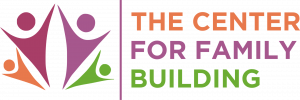Plan ahead: How to talk to friends and family about your journey
Families who have non-genetically related children regularly confront many issues. One of these issues concerns the curiosity that many people have about where the child “comes from” or which parent a child resembles. As a result, parents who use egg or sperm donation or adoption to form their families often find themselves fending off unwanted questions. Couples may be asked, “who is the real dad/mom?” Single parents are often asked about how they had their child and where the other “parent” is.
While these comments may be well meaning, they can feel very hurtful.
For decades I have witnessed parents, and parents-to-be, use these same phrases as well. It can be difficult to get accustomed to changes in society, to use gender neutral pronouns and to understand that the people who parent the child are the parents. In fertility counseling these parents to be are called intended parents. When a surrogate, egg donor and sperm donor are used to create a child it can be confusing but if we remember that the people who intend to parent that child are the parents, we will always know who the parent is, and is not.
Since this scenario is very common, it is helpful for parents and parents-to-be to think about how they can respond to the outside world in a way that feels comfortable and also considers the long-term implications of their choices. For example, many people decide to share their journey openly. This is an option that works for some people. Yet for others, their initial desire to be open can lead to a constant fielding of questions and may become tiresome or frustrating over time. Others may decide to be more private about their path to parenthood. They may believe that this decision is self-protective. However, it may also feel isolating.
The quest to have a child may be joyful or difficult and can carry a wide range of experiences when disclosing to others. Information about the child’s genetic connections belongs to the child, but the story about the journey to have a child belongs to the parents and it can be extremely valuable to take the time to consider how their decision to share their information with other’s will affect them and their family.
Close family members and friends can also unknowingly create difficulties for the new family. If they believe the child’s sperm donor is the dad, what are they telling the child? Do they see the non-biological parent as less of a parent? Will the child learn something they don’t know about themselves by overhearing their grandmother discussing the child’s origins with another family member at the Thanksgiving Day table? If the parents decide to share the details of their journey with friends and family, it is important for them to disclose early to the child so the child does not hear about their beginnings from someone other than their parents. It is also important to explain to family and friends how they will disclose to their child and describe the language that will be used. The child should hear the same narrative from everyone in that child’s world. Little ears frequently hear more than we expect.
For parents in a couple, it is imperative that both parties work out an agreement that feels manageable. One partner may be more outgoing, feel more comfortable about telling the world their story and have family members who are open minded and flexible. The other partner may feel differently or have a different family dynamic. Each parent’s feelings and unique experience needs to be respected. At the Center for Family Building we often hear parents or parents-to-be say, “I never knew that”, or “I didn’t think of that”. An experienced counselor can raise important questions, help the couple negotiate and create a plan that considers their long and short-term objectives and will consider all parties involved. This process does not need to be perfect. What is important is taking some time to discuss these issues. A little planning can help communication between partners, families and friends and minimize the potential for problems later.
